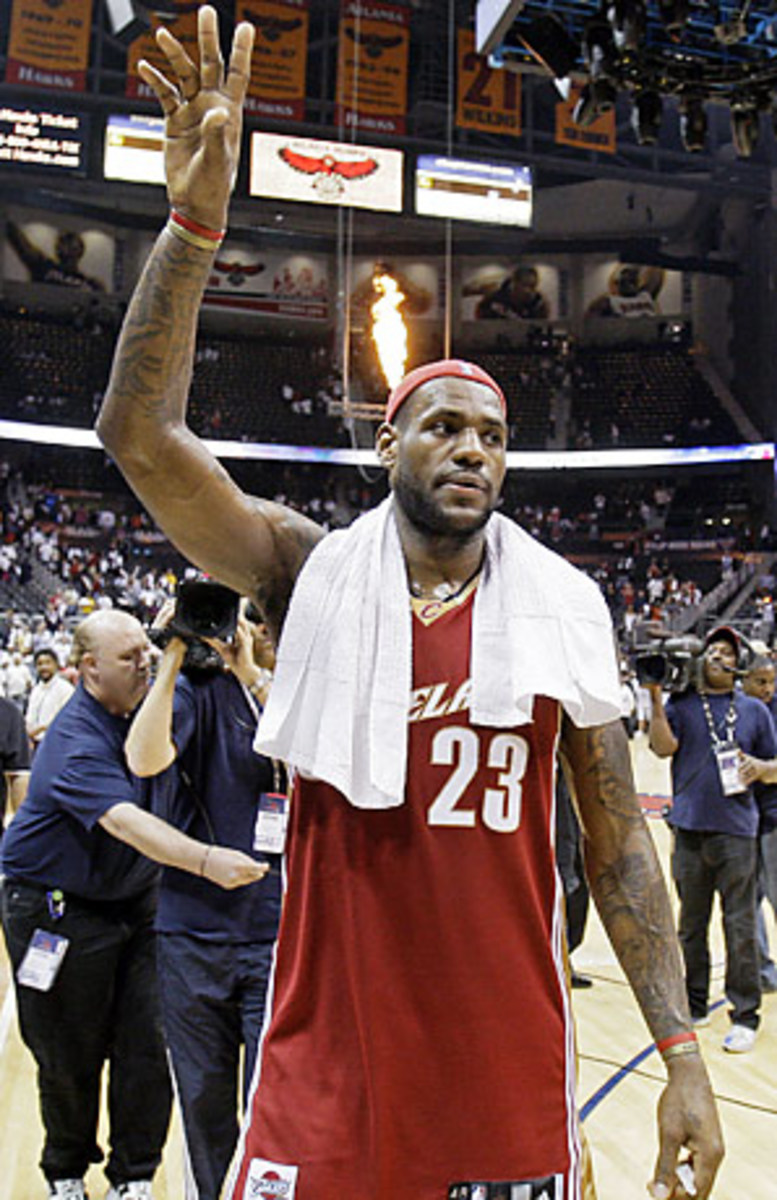Cavaliers face challenge to keep focus with extended break
ATLANTA -- It wasn't easy, but it wasn't that tough either. When the final buzzer sounded in Game 4 of the Eastern Conference semifinal, though, it was the Cavs again raising their arms in victory for the eight straight game, thanks to a stingy defense that held Atlanta to 31.5 percent shooting (15.4 percent from three-point range) and some clutch shooting by Mo Williams and Delonte West down the stretch.
Now comes the hard part.
If patience is a virtue, the Cavs certainly hope they are blessed with it. With Boston and Orlando locked into what seems destined to be a seven-game series, Cleveland is faced with the possibility of not playing again until early next week. This on the heels of the nine days they had off between their brooming of the Pistons and the opener of the Hawks series.
"We have to manage our time correctly," said West. "I'm not sure if there is a right way to do that. We have to get in some days of rest and also get in some days with a good sweat."
There are advantages and disadvantages to a prolonged break between series. On the plus side, veterans get much needed rest.
"I've got a broken leg," said center Ben Wallace. "I'll take as much rest as I can get."
Further, practices become more intense. When you are going up against the same players day after day, the playbook goes out the window. All that remains are five guys on one side, five on the other and whoever has the greatest will to score usually does.
"When you are only going against each other, it makes everybody better," said Wallace, a 124-game playoff veteran. "It's not about Xs and Os. It's about finding a way to score, however you can."
Of course, there are disadvantages. LeBron James said that within a few days of playing against each other in the break between the Detroit and Atlanta series, the team was sick of banging the same bodies. Wallace pegged it at three.
"That third practice," recalled Wallace. "We were just looking at each other and saying, 'man, let's just play somebody else already.'"
It will be incumbent on the coaching staff to find a balance between overworking the players and keeping them sharp and avoiding rust before what will be a much more challenging conference finals. As an assistant coach, Mike Brown was part of long playoff runs in San Antonio and Indiana. And as a head coach he led the Cavs to the 2007 NBA Finals. But even he sounded uncertain as to what kind of week his team could expect.
"It's going to be a group effort," said Brown. "I'll figure out what we are going to do schedule-wise but I'm going to get some input. Whether I want it or not I'm getting input from [GM] Danny Ferry. My team gives me input and the coaching staff gives me input."
"We kind of do it by feel," Brown continued. "In the last round Z (Zydrunas Ilgauskas) came to me and said 'let's take this day off.' I thought about it, decided it made sense and we did it. There's really no rhyme or reason for our plan, except for the fact that everyone has a voice."
Complicating matters is the fact that for most of the week Brown will be preparing his players for two entirely different teams. Orlando has a low post-oriented offense that centers around Dwight Howard ("the most dominant big man in the game today," said James). Boston is more perimeter-oriented and attacks with wing players Paul Pierce, Ray Allen and Rajon Rondo.
Which raises the question: who do the Cavs want to play? While most of the players said it didn't matter, James allowed a little of his personal feelings to leak out. When asked if getting another crack at Pierce, who went shot for shot with James in an epic Game 7 of last year's conference semifinals, a small grin creased his face.
"I'm a competitor," said James. "I thrive on going against the best. I love going against the best. You take your answer from that."






